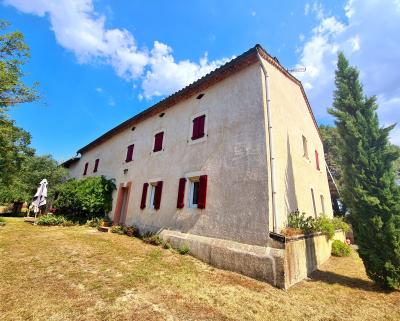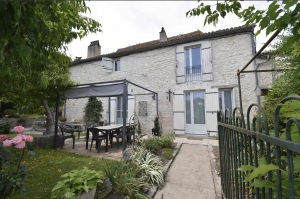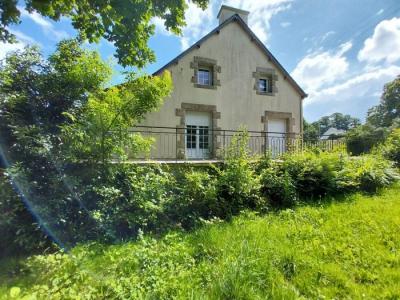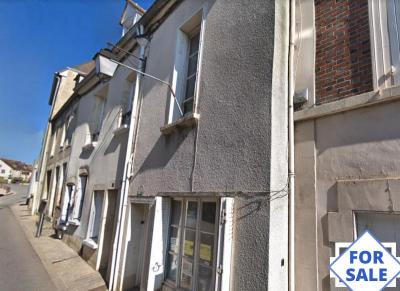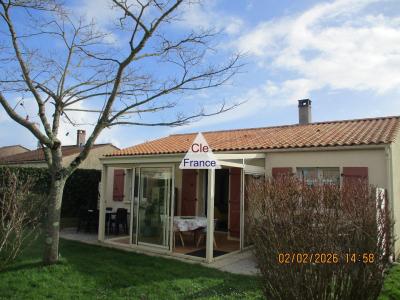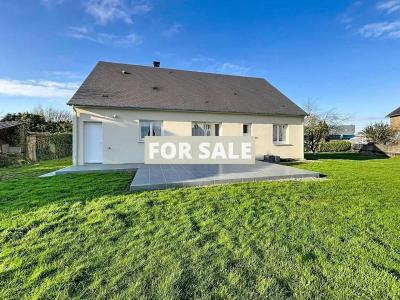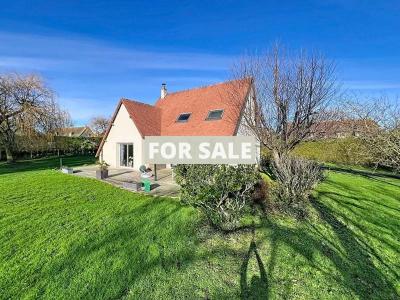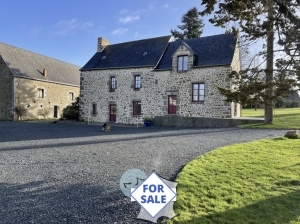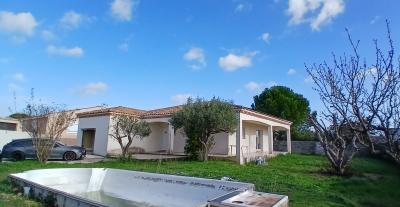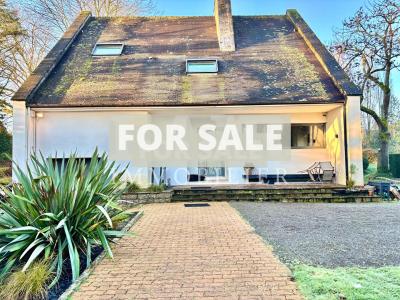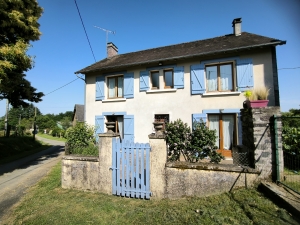Club Clé France: Legal Guide to New Build French property


We are proud to work in partnership with Ashton KCJ - Legal services. If we think our clients need further legal advice or have a specific legal question that needs solicitor involvement when buying or selling a property in France we can recommend...
Matthew Cameron and his team for expert advice.
Original article supplied by Ashton KCJ - Legal Services.
Introduction:
Buying a property off-plan is a popular option for many people. Contracts for the sale of incomplete properties are different from those used for the sale of existing properties and are subject to strict laws for the protection of the consumer which largely dictate their format.
The three main types of 'new-build' transaction are:
• single house construction
• purchase of a property on a development under construction, (perhaps an apartment or a house on an estate)
• purchase of a property which, upon completion, is to be leased to a tenant company that will use it for holiday lets, with rent being paid to the owner – generally known as a 'leaseback purchase'.
Whatever type of property purchase you choose, new-build or otherwise, it is important to consider the taxation and estate planning implications.
Single house construction:
A single house construction is when you purchase land and then have your own house built upon it. There are a number of companies that specialise in such transactions, often offering to build one of a set of house styles for you, or you can of course contact your own architect and have a house built to your own specification.
Clé France have a Partner Architect who offers this service.
Generally an agreement for the purchase of land is completed along with a separate contract with a builder for construction of the property on that land. This second contract is known as a 'contrat pour la construction d’une maison individuelle' (CCMI).
The two contracts must work together properly, so careful drafting is required. As with other types of new-build property there are strict requirements as to the information which such contracts must contain. Larger builders and developers are likely to have their own standard forms of contract which comply with the requirements, although again care should be taken to ensure that they are in fact suitable.
The land purchase contract may need certain special clauses added, including for example a condition for planning permission. The construction contract would itself be dependent on the land purchase contract being completed. In this way, provided that the land can be purchased, and planning permission granted, then the construction contract can take effect; on the other hand there should not be a situation in which the construction contract is binding, without land or permission to build.
Lotissement:
A 'lotissement' is a particular case of single house construction. A developer divides an area of land and then sells it by lots to different purchasers. The developer has to obtain a specific permit and must build in particular the road, and any community facilities.
Once the developer has this permission, he will be able to sign an offer of sale. When he has finished the road works, you will be able to apply for the written planning permission and then to sign a sale deed. You sign a sale deed before the completion of the road works.
Once you have obtained planning permission, the construction of your home can begin. Your plans will have to respect certain building specifications (le cahier des charges) which impose some rules of construction to ensure a similar appearance between the different houses in the 'lotissement'.
Purchase of a property in construction – 'vente en l’état futur d’achèvement' This is when you purchase a house or apartment on a development under construction, a system generally known in the UK as 'off-plan' sales. In France these transactions are known as 'vente en l’état futur d’achèvement', (VEFA) which describes the fact that the sale deed – the 'Acte de Vente' – is signed well in advance of the property actually reaching completion ('achèvement').
Typically you will be required to sign a reservation contract, and then the purchase deed before the building work has finished. You take ownership of everything that has been built by then, and the remainder as work progresses.
Ownership of the property transfers to you, (the buyer), well before you are able to occupy it. In general the notaire will look to transfer title when foundations are completed, when normally about 35% of the purchase price is payable. This does mean that if you are buying a third floor apartment, no part of the work for your particular apartment may even have commenced. Nevertheless, various guarantees as to completion must be included in this form of transaction. There must be ample protection for the buyer, to ensure that the property being purchased will actually be completed.
A variation on the VEFA is the 'vente en l’état futur de rénovation' which, as the name implies is the sale of a property which is in the process of being renovated. This is not a very common form of transaction but is sometimes found when, for example, an older apartment block is undergoing a major renovation.
As mentioned under co-ownership opposite, where you are buying an apartment, or a house on certain estates, you will not only be the absolute owner of that property, but you will also take a proportionate ownership of all of the common parts – that is the land upon which the building is situated, the structure and common areas of the buildings and so on.
The process relating to this kind of sale will normally be as follows:
1) The reservation contract:
The reservation contract is the seller’s commitment to reserve the property for the purchaser in exchange for the payment of a deposit. The reservation contract must be sent to the buyer who has seven days after the receipt of the letter to retract, by way of a cooling off period. If the buyer withdraws his offer, the deposit will be refunded to him, provided that the withdrawal fulfills certain criteria.
The reservation contract must contain certain clauses and in particular:
• a detailed description of the future property
• a technical summary of the siting of the property within the development and of the materials used
• the anticipated date of signature of the sale deed
• the provisional date of completion of the construction
• the amount of the deposit.
2) The sale deed:
A draft of the sale deed has to be sent to the buyer at least one month before the date of completion. If one of the party refuses to sign the sale deed, then in the case of the purchaser’s refusal, the deposit is refundable only if there is a difference between the reservation contract and the final deed of sale. The buyer could refuse to sign the completion documents on the grounds of unreasonable delay in completion of the building work or because the price is 10 % higher than the agreed price.
It may, however, be difficult to prove unreasonable delay on the part of the developer, not least because various potential delaying factors will be anticipated within the reservation contract and developer’s liability excluded in that respect. The reservation contract should be carefully scrutinised. If the seller refuses to sign, he has to refund the deposit and he could be sued for damages. It is at this point that the notaire’s fees are payable by the buyer - these are normally in the region of 2% - 3% of the purchase price, plus a further 1% if a mortgage is secured against the property.
It is important to note that transfer of ownership may take place well before a property is ready for occupation. You should separate the point of legal completion from the moment when delivery takes place.
3) Delivery of the property:
The delivery of the property is a very important stage in the process, which will take place a good while after the actual legal transfer of title has taken place, as referred to above. The seller gives you the keys of your home. You have to declare all the apparent defects you can see in a snagging list (liste de réserves) that both you and the vendor will date and sign.
If the flat or the house does not conform to its description in the sale deed, you may be able to seek remedy for breach of contract and some damages, or to compel the builder to comply with the contract.
The buyer has one month after the delivery to declare any apparent defects in the building. After that, the buyer will be able to rely on the builder’s liability for all structural defects during a period of ten years. The 'garantie décennale' protects the buyer against certain latent defects during the ten years following the delivery of the property.
There are three kinds of guarantees that the seller can choose from:
• The 'garantie extrinsèque' given by a bank or a insurance company which protects the buyer against the insolvency of the builder
• The 'garantie intrinsèque' given by the builder who promises the completion of the property. This guarantee is only recommended when the risk of non-completion or insolvency is low
• The 'garantie de remboursement' which allows the buyer to be reimbursed in the case of non-completion of the construction.
Once one of the above guarantees is in place, you will either get your money back, or construction is assured. We can advise you about these different guarantees, and it is wise to be fully aware of their implications.
'Leaseback' sales:
Buying a new property on a leaseback arrangement may be an attractive and well-marketed method of reducing your purchase costs, especially when you are looking to buy a second home in popular holiday destinations such as ski resorts. While it can offer a good way of structuring your purchase, it is actually highly complex and should not be entered into lightly. As a rule of thumb, it is probably prudent to think of such purchases as very long-term investments (although this is a subjective and general comment and not intended to be made by way of investment advice; you may be happy to treat it otherwise).
The situation is commonly that a developer will obtain permission to develop a resort, and as part of this, separate properties (typically apartments in a block or chalets on a private estate) are pre-sold to buyers. At the same time, those buyers agree that once the property is delivered to them, they will immediately enter into a lease with a holiday company who will look to rent out the property as short term holiday lets.
The benefit to the owner is initially a government incentive to develop tourism – the TVA (French VAT) applicable on new developments is not charged. Since TVA is currently 19.6%, this can result in a discount of the purchase price of just short of 20% (although see under Taxation below for a further discussion on this point).
Where the intention is to occupy a property for only a limited time each year, or even not at all, leaseback ownership can offer a regular rental income, without the burden of having to market the property personally, or employ local Agents to do this. Inevitably this will depend on the popularity of a particular resort, and it is important to research such issues before signing up.
While such schemes normally offer a regular rental stream, it is commonly the case that the amount of the rent is lower than may be obtained for a similar property if offered directly, although this is probably the counterbalance for not having the burden of marketing the property, cleaning it, managing guests and so on.
Indeed this is a relevant point: it is a requirement of such leaseback schemes that in addition to the provision of rooms to holiday makers, other 'quasi-hotel' services must be available, generally including linen services, cleaning, food and beverage, bar, leisure facilities and so on. The normal position is that these services are generally available to property owners as well as holiday makers.
It is also important to be aware of the manner in which the lease anticipates payment of rent. Some leases agree a fixed rent, while others split the profits declared by the tenant company between the whole pool of property owners as a dividend. In this case you must bear in mind the possibility of profit not being declared.
It may be wise to seek some assurance about the viability of the development, the strength of the holiday company, and the sustainable level of rent. It is also important to establish exactly how the lease could be terminated, if at all, and whether any penalties would be payable for such a termination.
If the rental income is to be used to cover mortgage payments, give thought to what will happen if a variable rental income produces less than the monthly instalment. What if the tenant company becomes unable to pay the mortgage at all – perhaps because of insolvency?
It can be seen from the points raised above that a leaseback can be an attractive option for some, but there are a number of potential pitfalls and a thorough understanding of the implications for you is highly desirable. History has shown us that leasebacks have in the past been sold as something like 'free properties' – where the buyer can obtain an 80% mortgage, for which the repayments are covered by the rental income, and the remaining 20% just about covered by the TVA reduction.
Such talk – if it still persists – gives credence to the maxim that if something sounds too good to be true then it probably is. A leaseback purchase may be ideal for you, but you must be careful where you buy, and be fully aware of all the terms of the contracts. The contract documentation for such transactions is generally quite burdensome.
Co-ownership:
In many purchases in multi-occupancy developments, such as apartments or houses on an estate, you will be acquiring not only the freehold of your own unit but also rights in the communal areas. These rights are expressed as a fraction and determine your proportion of voting rights with regard to the running of the co-ownership committee and also your responsibility to contribute to the running costs and the costs of any agreed works.
The building or development is run by a committee of the owners, known as the 'syndicat de copropriétaires' who appoint a person or company known as a 'syndic' to act as a managing Agent to administer its day to day running. The 'syndicat' must hold an annual meeting and all co-owners must receive advance notice of this.
The co-ownership is governed by a set of rules and regulations binding upon all co-owners and anyone using a property. The rules set out how each property can be used (generally to ensure no disturbance of neighbours), and sets out the constitution of the management committee and voting capacity of each co-owner in meetings.
Taxation:
Taxation is an important area to consider when purchasing new-build properties. There are a number of issues that may arise, especially insofar as new properties on leaseback arrangements, and selling new properties, are concerned.
The main points to bear in mind – generally income tax and TVA – are summarised below; it is however imperative that a full and in depth analysis of this subject be addressed.
Local taxes:
It is normal for new property developments to be exempted from the local land tax known as the 'taxe foncière' for the first two years following construction. This will not always apply, and when it does it may not be a total exoneration, since the local authority will often reserve the right to charge at least a part of it.
Nevertheless it does offer a small discount. It is the responsibility of the property owner to claim the exoneration.
Income tax:
Just as is the case when buying any property in France, French income tax is applicable on rental income derived from the property. This is the case even if you are not resident in France.
It is the owner’s responsibility to register for the tax at the relevant tax office.
If you are UK resident, then you must also declare the income on your UK tax return, although you are able to take into account the amount of tax already paid in France, by virtue of the double taxation treaties in force. These have the effect of ensuring that the greatest aggregate amount of tax is payable, so you may be require d to make a balancing payment of UK tax if your marginal rate in the UK is higher than in France. On the other hand if your taxation is higher in France, then you would not be entitled to a rebate in the UK.
If you are UK resident you will need to declare your French income at the 'Centre des Impots des non-résidents' in Noisy Le Grand. You may well benefit from contacting a French accountant to address this.
TVA (French VAT):
There are a number of ways in which TVA is applicable on new-build properties. The rate of TVA is 19.60%. TVA is applied on the development of a new house – but not the land if this was purchased separately. In the case of a 'vente en l’état futur d’achèvement', the TVA applies to the whole sale price.
Want to contact Ashton KCJ ? - then simply complete the Enquiry form below:
The information that you give and that we obtain through you using this website may be used by this Company and by our partner companies only for purposes in connection with your use of this website and for marketing activities of this Company and partner companies. By using this site you confirm your consent to this. If you do not want to receive any marketing information from this Company and/or our partner companies then please notify us.
Ashton KCJ is authorised and regulated by the Solicitors Regulation Authority (Recognised Body number 45826). The information contained in this guide is of a general nature and specific advice should be sought for specific situations. We believe the information to be correct as at the time of publication, February 2013. While all possible care is taken in the preparation of this leaflet, no responsibility for loss occasioned by any person acting or refraining from acting as a result of the material contained herein can be accepted by the firm or the authors.
For everything you need to know about French property for sale visit www.clefrance.co.uk

